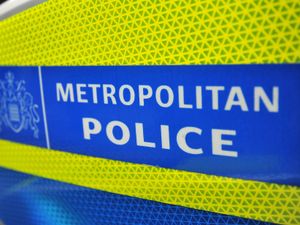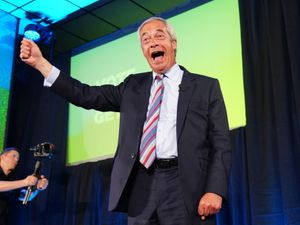Rail fares to rise by 3.6% in new year as RPI inflation rate increases in July
It came as Consumer Price Index (CPI) inflation held steady at 2.6% last month, the same rate as June.

Rail passengers will see fares rise by 3.6% when price changes come into force in the new year, according to official figures.
The Office for National Statistics (ONS) said the Retail Price Index (RPI) measure of inflation, which is used to calculate train ticket prices, rose by 3.6% in July, up from 3.5% in June.
It came as Consumer Price Index (CPI) inflation held steady at 2.6% last month, the same rate as June.
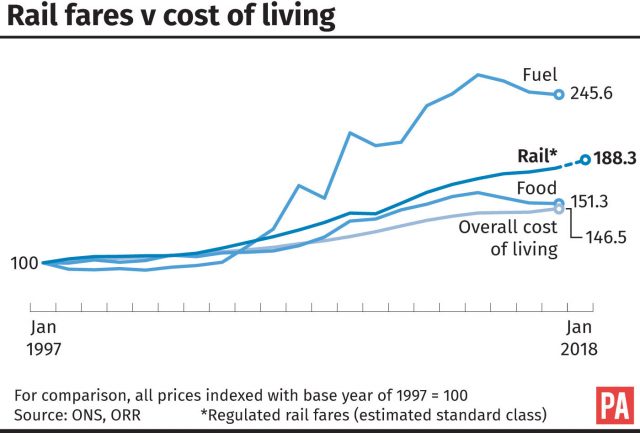
While the outcome was below economists’ predictions of 2.7%, CPI remained above the Bank of England’s inflation target of 2%.
James Tucker, ONS head of consumer price inflation, said: “Falling fuel prices offset by the costs of food, clothing and household goods left the headline rate of inflation unchanged in July.”
However, he warned against using RPI, saying it was “not a good measure” and the ONS does not “recommend its use”.
Sterling, already under pressure amid political confusion over Brexit, dipped on the news.
The pound was trading 0.3% lower against the dollar at 1.29 and 0.1% lower verses the euro at 1.09 euros.
Households have seen their spending power come under sustained pressure from lacklustre wage growth and higher inflation, triggering an increase in credit and a decline in savings.
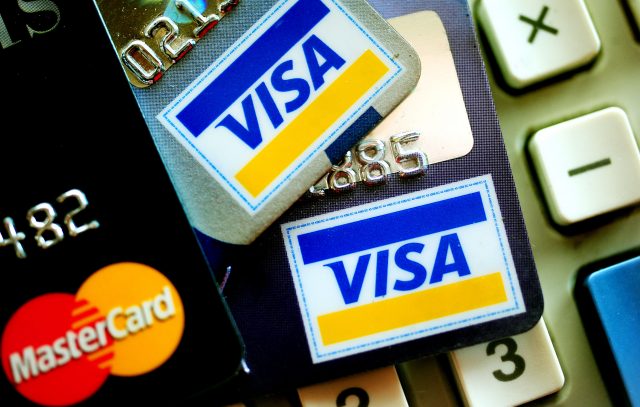
The ONS said the main downward impact on the cost of living came from a drop in fuel prices, which sank by 1.3% between June and July after growing by 0.7% over the period in 2016.
Petrol fell by 1.4p month on month to 113.9p per litre, while diesel slipped by 1.7p to 115.6p per litre.
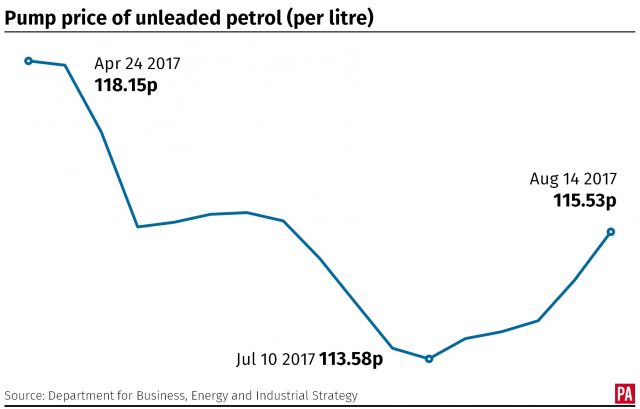
The decline was countered in part by food prices notching 0.1% higher month on month in July after falling by 0.2% over the period last year.
Meat and other items such as sauces became more expensive in July, the ONS said.
Clothing and footwear prices were putting upward pressure on CPI after recording a smaller fall of 3% between June and July, compared to a 3.4% drop last year.
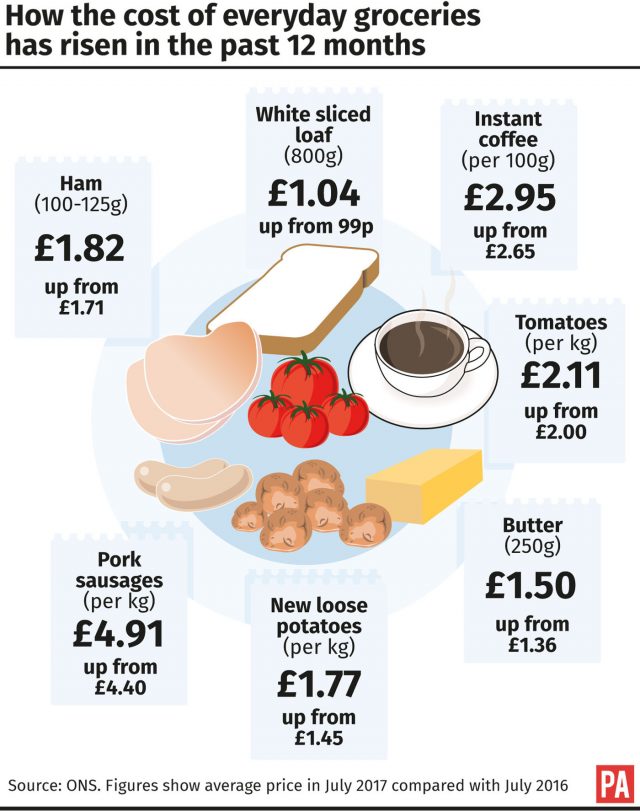
Utility bills were also pricier last month, with electricity, gas and other fuels lifting 0.8% between June and July after coming in flat over the period in 2016.
The jump was partly caused by energy giant EDF hiking electricity and gas prices towards the end of June.
The Consumer Price Index including owner-occupiers’ housing costs (CPIH) also remained at 2.6% in July, in line with the rate for June.
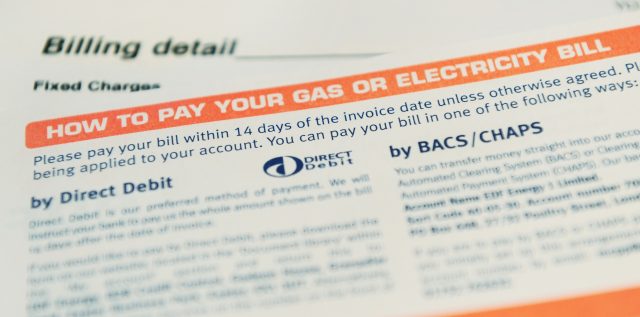
CPIH is the ONS’s preferred measure of inflation, which includes costs associated with living in, maintaining and owning a home.
A Treasury spokesman said: “Although inflation is likely to start falling next year, we understand some families are concerned today about the cost of living.
“That is why we have given the lowest paid a pay rise through the National Living Wage and are cutting taxes for 31 million people.”

